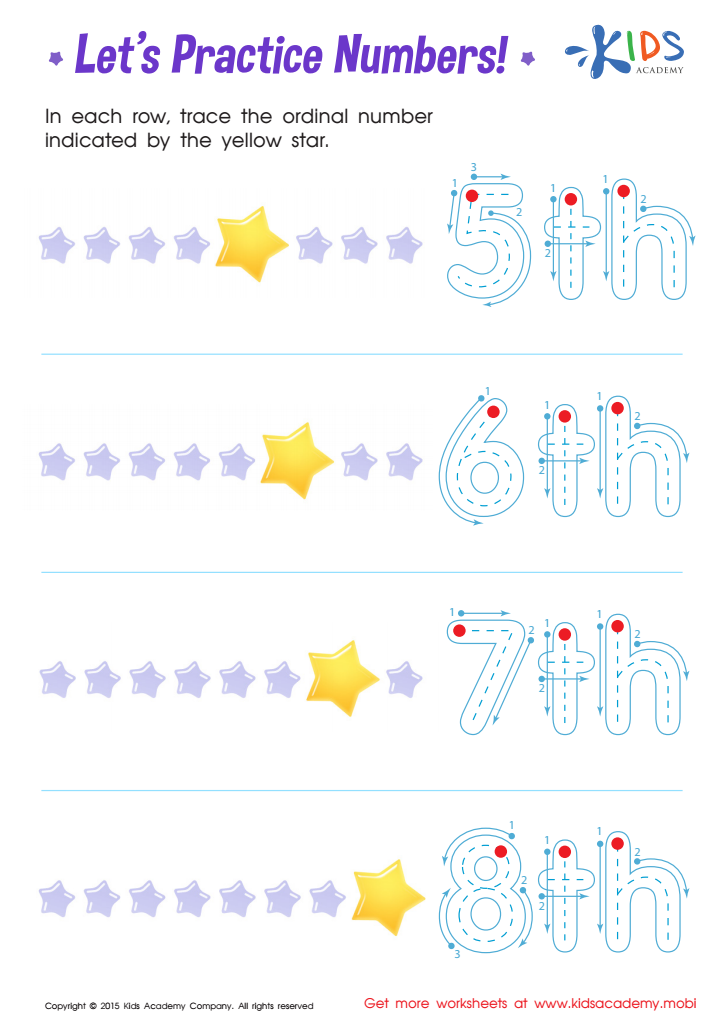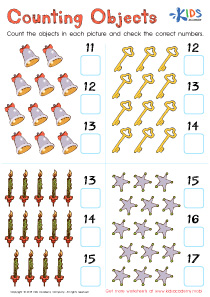Fine Motor Skills Normal Tracing Numbers Worksheets for Ages 6-7
6 filtered results
-
From - To
Boost your child's numeracy and fine motor skills with our "Fine Motor Skills Normal Tracing Numbers Worksheets" for ages 6-7. Perfectly designed for little learners, these engaging and easy-to-follow worksheets help children practice tracing numbers while enhancing their hand-eye coordination and dexterity. Each worksheet provides ample tracing exercises that help solidify number recognition and writing skills, making math fun and approachable. Ideal for classroom settings or home practice, these resources support early learning and build a strong foundation for future academic success. Discover the joy of learning numbers with our expertly crafted tracing sheets!
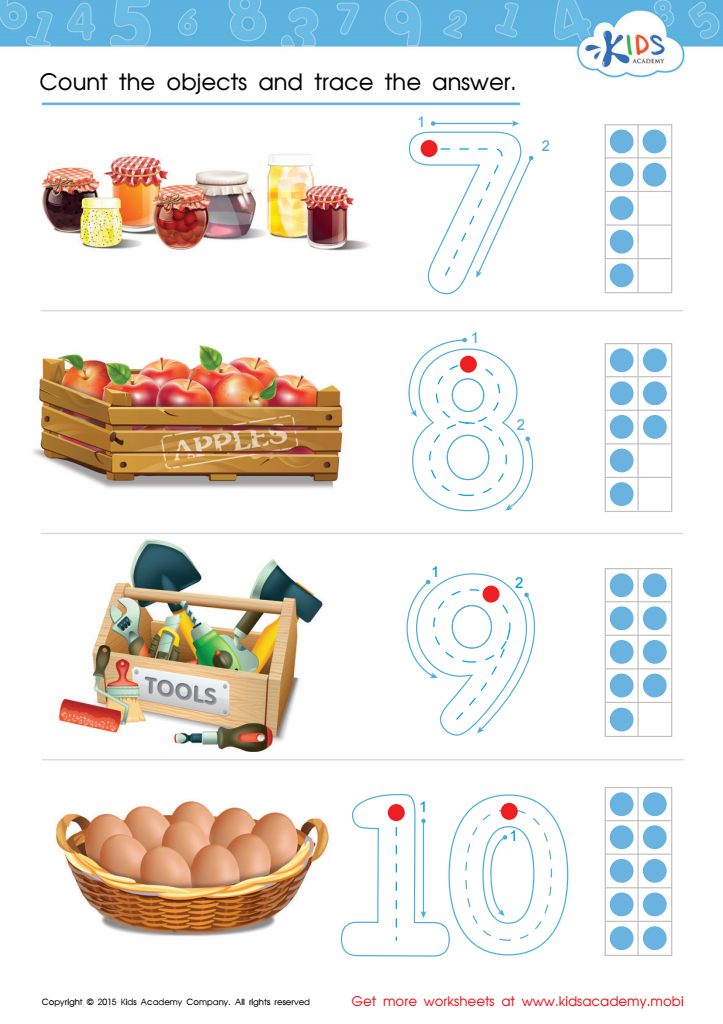

Count and Trace 7 – 10 Worksheet
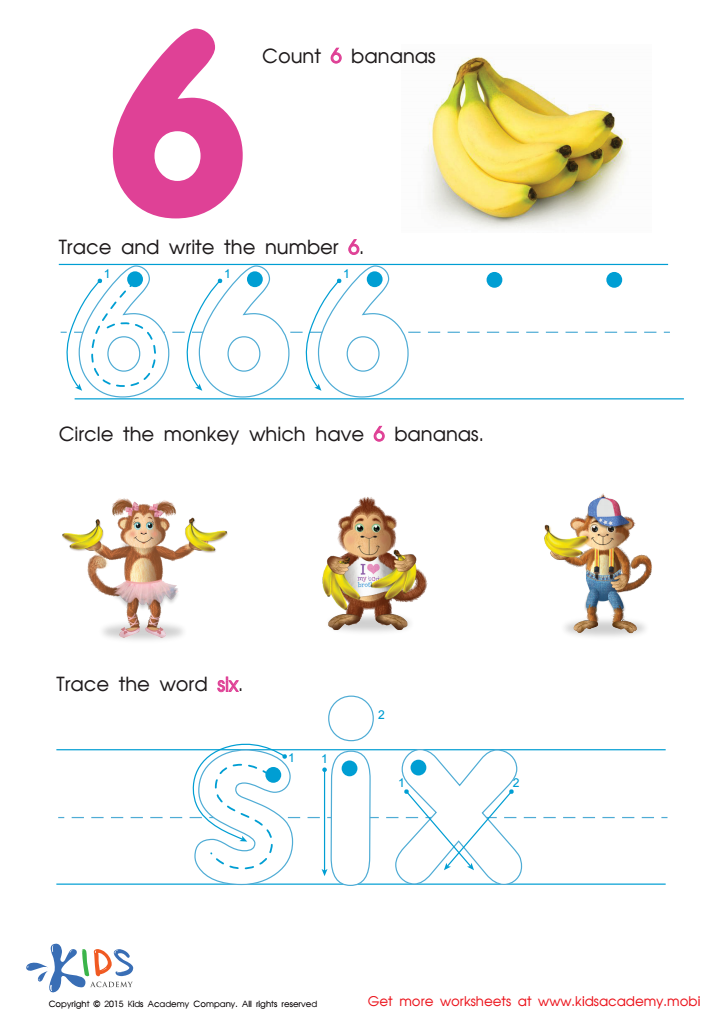

Tracing And Writing Number 6 Worksheet
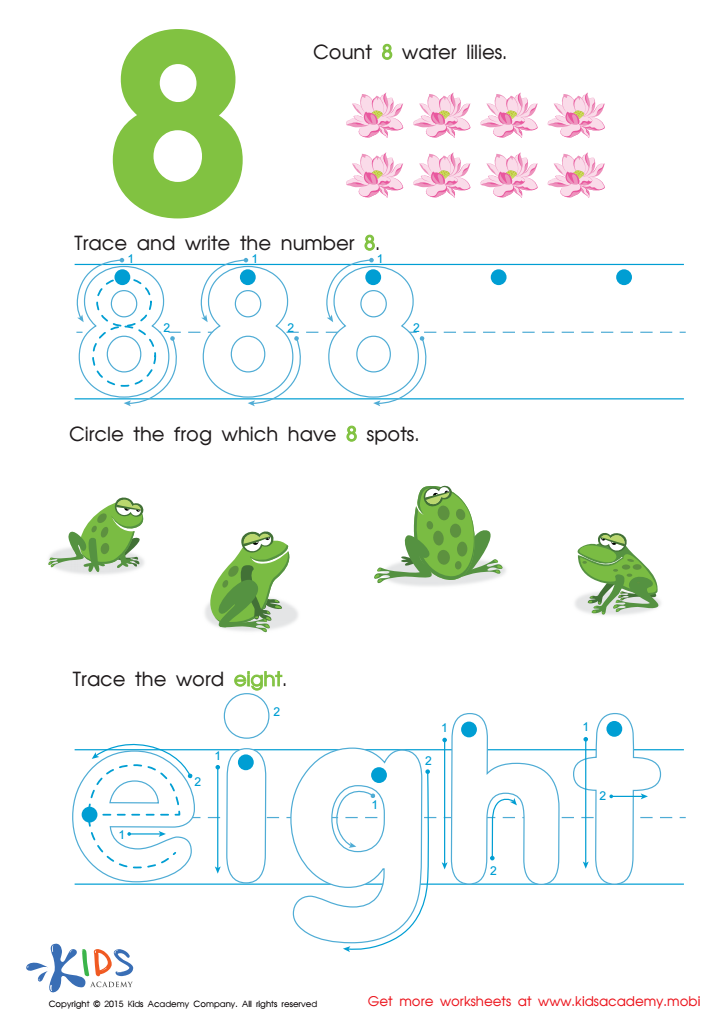

Learn Number 8 Easily Worksheet
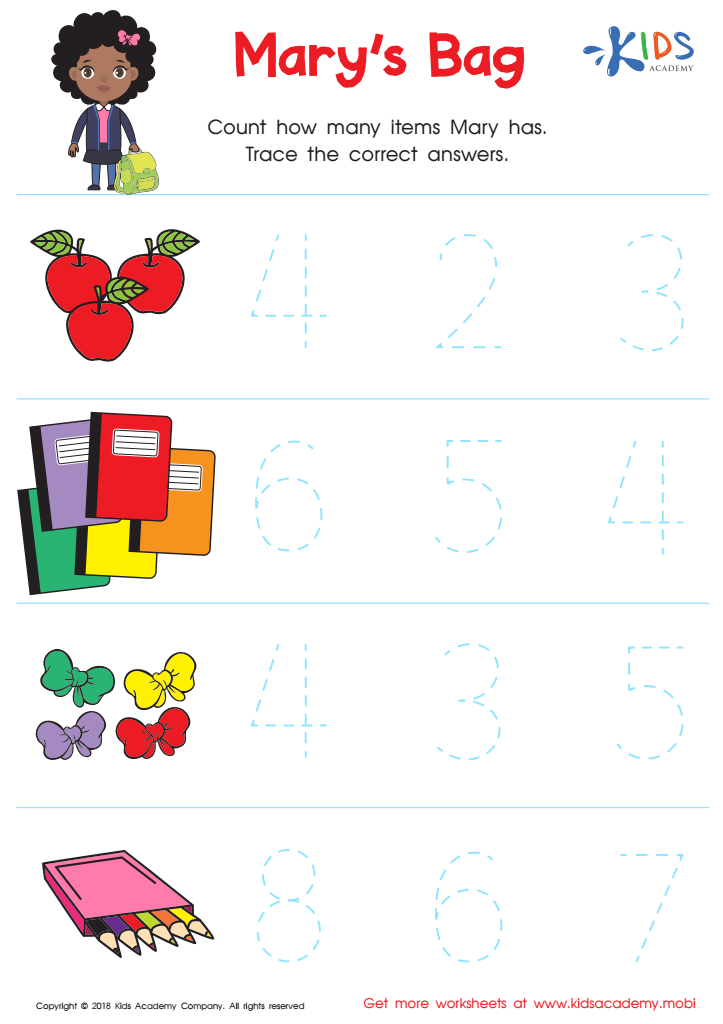

Kindergarten Number Tracing: Mary's Bag Worksheet
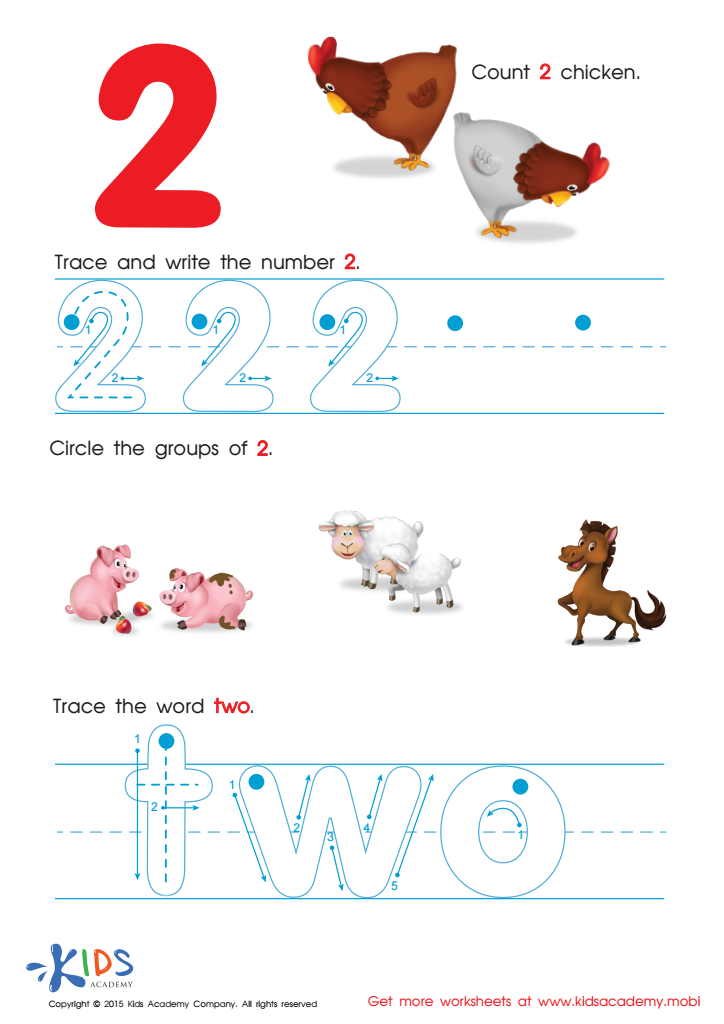

Learn to Write the Number 2 Worksheet
Fine motor skills are crucial for children aged 6-7 as they lay the foundation for a variety of essential tasks and academic success. At this age, children's hand-eye coordination and muscle control are rapidly developing, making activities like normal tracing numbers pivotal. Tracing numbers helps refine these skills by requiring precision and control, which are essential for writing and other day-to-day tasks.
When parents and teachers emphasize fine motor development through activities like number tracing, children are better prepared for more complex tasks. Writing neatly, cutting with scissors, tying shoes, and even typing on a keyboard are all predicated on strong fine motor skills. Overlooking these skills can lead to difficulties in these areas, impacting self-confidence and academic performance.
Moreover, fine motor skills are intertwined with cognitive development. Tracing numbers isn’t just about muscle memory; it helps children understand number formation and recognition, reinforcing their mathematical foundation. A strong grip and coordinated movements allow for efficient learning, reducing frustration and enabling the child to focus on more complex academic concepts sooner.
In summary, prioritizing fine motor skill activities like tracing numbers for children aged 6-7 significantly benefits their overall development, ensuring they are well-equipped for both academic and daily life challenges.
 Assign to My Students
Assign to My Students
